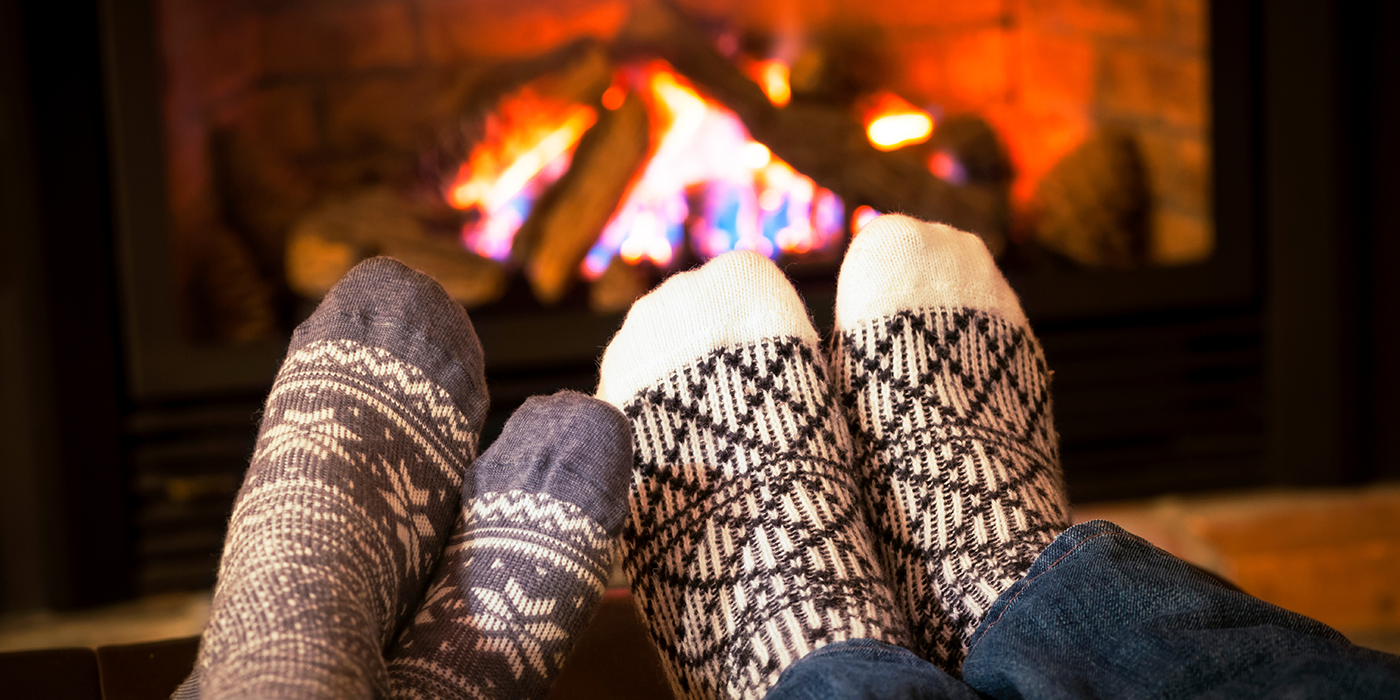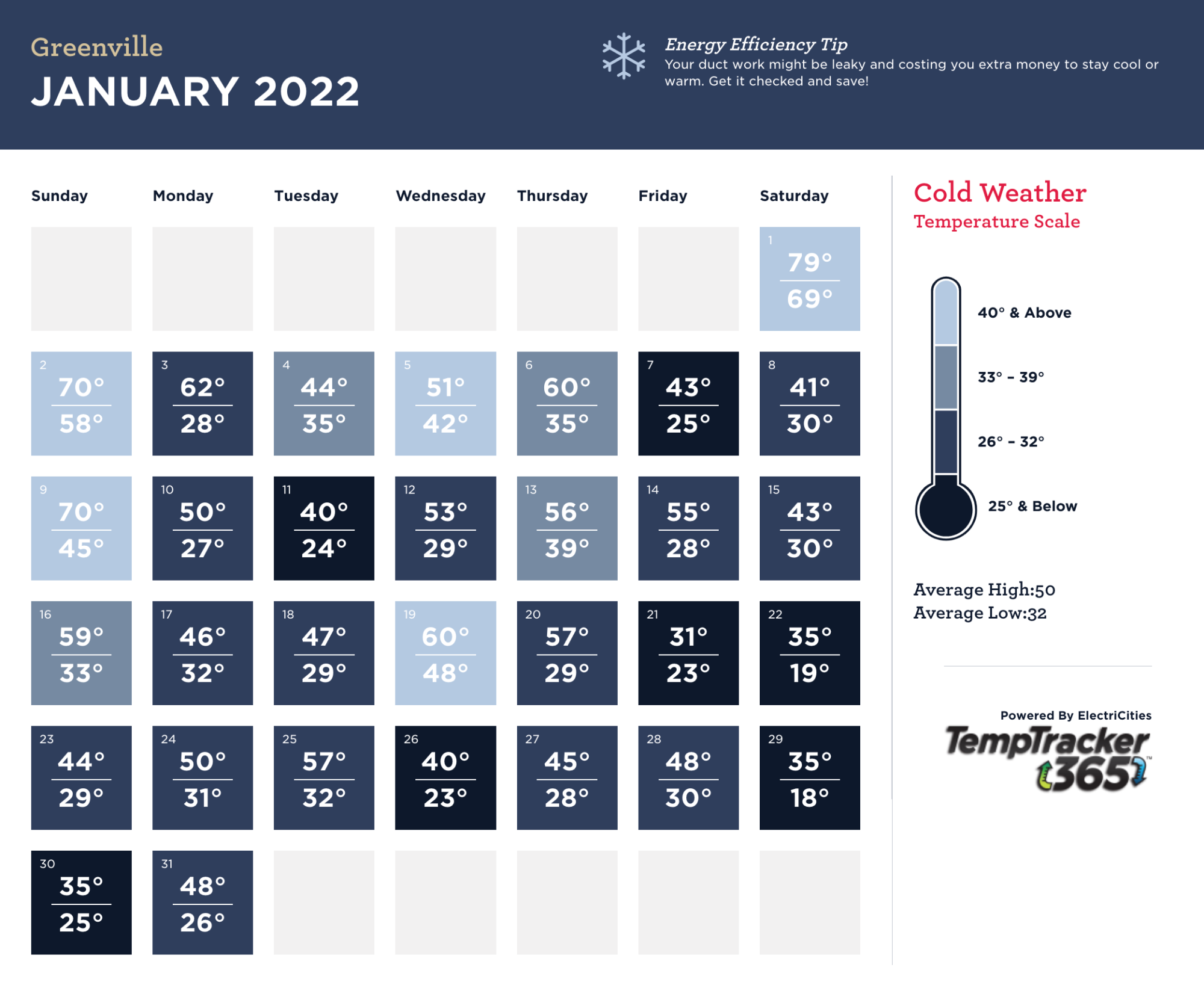Falling Temps, Rising Bills

Falling Temps, Rising Bills
 When temperatures drop, utility bills rise. As displayed on the ElectriCities of NC TempTracker chart to the right, January had a lot of bone-chilling temperatures that have triggered more electricity and natural gas usage for customers, and higher-than-normal utility bills in February.
When temperatures drop, utility bills rise. As displayed on the ElectriCities of NC TempTracker chart to the right, January had a lot of bone-chilling temperatures that have triggered more electricity and natural gas usage for customers, and higher-than-normal utility bills in February.
Help us share with customers some of the ways to keep the cost of heating down in these remaining weeks of winter:
Heat Pumps
If you have an electric heat pump, in winter only, find the lowest comfortable setting, and don’t change it. Set it and forget it. The Department of Energy recommends a setting of 68 degrees. Every degree you lower the setting will save you money.
When you adjust the thermostat on a heat pump system, even by just one degree, it automatically forces the less economical back-up system to start running. This can be costly!
Other Forms of Heat:
For other forms of heat (natural gas, oil, propane, geothermal, electric furnace, and electric baseboard), adjust your thermostat as needed daily and throughout the day. The Department of Energy recommends a setting of 68 degrees (or lower).
If you’re gone for several hours or more, set the thermostat at 55 degrees, or even cut it off (unless pipes are in danger of freezing). Be sure to turn the thermostat down at night and cover up with blankets.
Customers can find more ways to save at guc.com.
